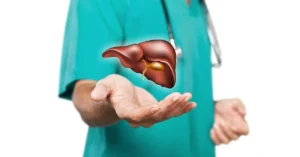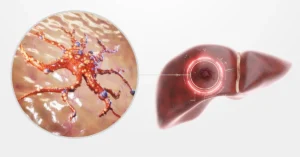Liver transplants in India have become a crucial procedure for patients with severe liver conditions. As this life-saving surgery gains prevalence, it’s important to understand the legal and ethical considerations guiding the process. Regulatory frameworks and cultural sensitivities play key roles in ensuring that liver transplants are conducted with fairness, transparency, and respect for all involved. These factors are vital to maintaining the integrity and success of the procedure, safeguarding the rights and dignity of donors and recipients alike.
Regulatory Framework
Informed consent is a vital aspect of the liver transplant process in India, ensuring that all parties involved—especially donors and recipients—make decisions with a full understanding of the implications. This process goes beyond mere signature collection; it is about thoroughly educating patients on the risks, benefits, and alternatives of the procedure. In the context of liver transplant in India, informed consent is particularly critical due to the complexity and potential risks associated with the surgery.
- Clear Communication: Patients and donors must receive comprehensive information in a language they understand.
- Voluntary Decision: Consent must be given freely, without any form of coercion or pressure.
- Understanding of Risks: Both donors and recipients must be aware of the potential risks and complications involved.
- Legal Compliance: The informed consent process must comply with India’s legal frameworks, including THOTA.
- Documentation: All consent procedures must be thoroughly documented to ensure transparency and legal validity.
By prioritizing informed consent, the liver transplant process in India ensures ethical practices and respects the autonomy and rights of all individuals involved.
Informed Consent
Informed consent is a crucial element of the liver transplant process in India, ensuring that donors and recipients make decisions with a full understanding of the implications. This process is not just about collecting signatures but involves thoroughly educating patients about the risks, benefits, and alternatives of the procedure. Given the complexity and potential risks associated with liver transplants, informed consent in India is particularly vital.
To ensure ethical practices and respect for individual autonomy, the following aspects are emphasized:
- Clear Communication: Comprehensive information must be provided to patients and donors in a language they can easily understand, ensuring clarity.
- Voluntary Decision: Consent must be given freely by both donors and recipients, without any form of coercion or undue pressure.
- Understanding of Risks: It is essential that both donors and recipients are fully aware of the potential risks, complications, and outcomes associated with the surgery.
- Legal Compliance: The informed consent process must strictly adhere to India’s legal frameworks, including the Transplantation of Human Organs and Tissues Act (THOTA).
- Documentation: All stages of the consent process should be meticulously documented to ensure transparency, legal validity, and accountability.
- Ethical Considerations: Prioritizing informed consent upholds the ethical standards of the liver transplant process, ensuring the rights and autonomy of all individuals involved.
By adhering to these principles, the liver transplant process in India promotes ethical practices and respects the dignity and autonomy of both donors and recipients.
Organ Allocation
Organ allocation is a critical aspect of liver transplants in India, designed to ensure that available organs are distributed fairly and efficiently. The process is governed by strict ethical guidelines to prioritize patients based on medical urgency, compatibility, and overall need. This system aims to provide every patient with an equitable chance at receiving a life-saving liver transplant, ensuring transparency and fairness throughout.
The allocation process adheres to principles that prioritize patients with the most critical needs while maintaining a transparent and non-discriminatory approach. Regulatory authorities closely monitor the system to ensure compliance with ethical standards, thereby optimizing outcomes by matching the best donor-recipient pairs. This method not only complies with legal requirements but also upholds the highest ethical standards, ensuring that patients in need of a liver transplant receive the best possible care.
In cities like Delhi, where demand for liver transplants is particularly high, maintaining a fair and transparent system is essential. The process also considers the reasons for liver transplant, ensuring that patients with the most critical needs are prioritized.
- Prioritization based on medical urgency and compatibility.
- Adherence to ethical guidelines to ensure fairness.
- Transparent system monitored by regulatory authorities.
- No discrimination in the allocation process.
- Optimizing outcomes by matching the best donor-recipient pairs.
- Ensuring equitable access for all patients in need of a liver transplant.
Deceased Donor Transplants
Deceased donor transplants play a vital role in liver transplants in India, where the organ is procured from individuals who have been declared brain dead. This process is strictly governed by legal and ethical guidelines to ensure that the procedure is conducted with the highest integrity and respect for the donor’s and their family’s wishes. These guidelines are designed to uphold the dignity of the deceased while providing a life-saving organ to a patient in need.
Key aspects of deceased donor liver transplants in India include:
- Mandatory Consent: Consent from the deceased donor’s family is essential before any organ retrieval can take place. This step ensures that the donor’s or family’s wishes are fully respected and that the process is carried out with transparency.
- Legal Compliance: The entire process is governed by the Transplantation of Human Organs and Tissues Act (THOTA), which ensures that all legal and ethical standards are adhered to, promoting trust and integrity in the system.
- Comprehensive Documentation: Detailed documentation is required throughout the process to validate the consent and the procedural steps taken. This documentation serves to prevent any legal issues and guarantees that the process is transparent.
- Equitable Allocation: The allocation of organs from deceased donors follows a transparent and fair system that prioritizes patients based on medical urgency and compatibility, ensuring that those in greatest need receive the organ first.
- Cultural Sensitivity: The process is sensitive to cultural and religious beliefs, making sure that the family’s values and preferences are respected throughout the donation and transplantation procedure.
- Respect and Care: This comprehensive approach ensures that deceased donor transplants are conducted with the utmost respect, care, and ethical consideration, significantly contributing to the overall success and integrity of liver transplant procedures in India.
Living Donor Protection
In liver transplant procedures in India, safeguarding the rights and well-being of living donors is paramount. The process is meticulously designed to uphold the highest ethical standards and ensure that donations are made with full awareness and protection. Here are key measures in place to protect living donors:
- Voluntary Donation: Donations must be entirely voluntary, free from any form of coercion or pressure. Ensuring that donors choose to contribute willingly is crucial for ethical practice.
- Informed Consent: Living donors receive comprehensive information about the liver transplant procedure. This thorough understanding enables them to make informed decisions regarding their participation.
- Health Evaluations: Both medical and psychological assessments are conducted to determine the donor’s suitability and overall health. These evaluations help minimize potential risks and ensure the donor’s well-being.
- Legal Safeguards: Robust legal frameworks exist to prevent exploitation and coercion, protecting donors’ rights throughout the donation process. These laws are crucial for maintaining ethical standards in liver transplantation.
- Post-Donation Care: Continuous medical follow-up is provided to monitor the donor’s recovery and long-term health. This ongoing care is essential for ensuring the donor’s continued well-being after the donation.
- Ethical Standards: These measures collectively uphold the highest ethical standards, ensuring that living donors are protected and their rights are respected throughout the liver transplant process in India.
These practices underscore the commitment to ethical liver transplantation, prioritizing the safety and rights of living donors.
Combating Organ Trafficking
Organ trafficking poses a severe threat to the ethical practices of liver transplants in India. To address this, the country has established robust legal frameworks under the Transplantation of Human Organs and Tissues Act (THOTA), which is pivotal in preventing commercial exploitation and ensuring that liver transplants are carried out ethically. The enforcement of these laws is essential for preserving the integrity of the transplantation system and protecting vulnerable individuals from exploitation.
Key strategies to combat organ trafficking in liver transplants in India include:
- Strict enforcement of THOTA: This ensures that all liver transplants are performed ethically and without any commercial influence, adhering to established legal standards.
- Mandatory donor and recipient evaluations: These evaluations confirm that liver donations are voluntary and that all parties are fully informed about the process and implications.
- Authorization committees oversight: These committees review and approve all liver transplants to ensure compliance with legal requirements and ethical practices.
- Severe penalties for trafficking violations: Imposing stringent penalties on those involved in illegal organ trafficking deters such activities and maintains the transplant process’s integrity.
- Public awareness campaigns: These campaigns educate the public on the legal and ethical aspects of organ donation, helping to reduce the risk of exploitation and increase awareness.
- Enhanced regulatory measures: Continuous updates and enforcement of regulations ensure that practices remain in line with ethical standards and prevent illegal activities.
These comprehensive measures work together to create a safe, fair, and ethical environment for liver transplants in India, safeguarding the system against exploitation and ensuring that transplants are conducted with integrity.
Cultural and Religious Sensitivity
Cultural and religious sensitivity is a vital component of liver transplants in India, given the nation’s rich tapestry of diverse beliefs and traditions. Respecting these cultural and religious values is essential for the success and acceptance of liver transplants. Here’s how integrating cultural sensitivity can enhance the liver transplant process:
- Respecting Religious Beliefs: Many religions have specific perspectives on organ donation and transplantation. It is crucial to acknowledge and respect these views to gain patient and family trust and cooperation.
- Tailored Communication: Effective communication should be culturally sensitive, ensuring that patients and their families comprehend the liver transplant procedure in a manner that aligns with their religious and cultural contexts.
- Cultural Competency Training: Healthcare providers should undergo cultural competency training to handle sensitive situations adeptly and provide care that is respectful of diverse traditions.
- Community Engagement: Collaborating with community leaders and religious figures can help bridge gaps between medical practices and cultural beliefs, fostering a more accepting environment for liver transplants.
- Informed Decision-Making: Patients should receive comprehensive information about liver transplants that considers their cultural and religious backgrounds, allowing them to make well-informed decisions that resonate with their values.
- Ethical Integrity: By respecting cultural and religious diversity, the liver transplant process in India can uphold ethical integrity, ensuring that all patients receive compassionate and culturally aware care.
By integrating these cultural and religious considerations, liver transplant programs in India can promote greater acceptance and success, ensuring ethical and respectful medical practices.
Conclusion
Liver transplant in India is not just a medical procedure but a complex process governed by legal and ethical considerations. By understanding the regulatory framework, informed consent, organ allocation, and other ethical aspects, we can ensure that liver transplants are conducted fairly and respectfully. This ensures that the needs of patients are met while maintaining the integrity of the medical system.






